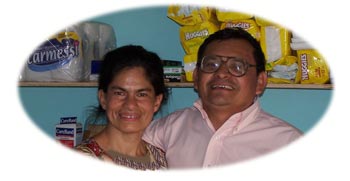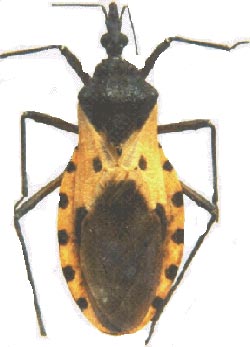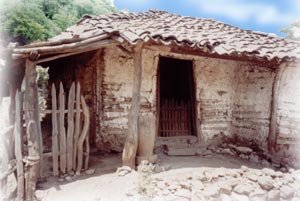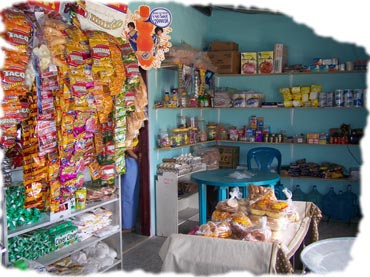
Newsletter - March, 2007
|
March, 2007 Assuredly, I say to you, inasmuch as you did it to one of the least of these My brethren, you did it to Me." Matt. 25:40 Published by the Society of the Good Shepherd, P. O. Box 122, Amberson, PA 17210 |

|
During the past year, Virgilio was preaching in the rural village of San Jose de Comayagua, which lies northwest of Siguatepeque. While staying there, he was bitten one night by a species of the assassin bug, called chinches in Honduras. These bugs are prevalent in many of the rural areas of Honduras. They live in the brush, and they also invade many of the rural homes that are made of unplastered adobe or of sticks and mud, where these bugs live in crevices in the walls. They also invade the thatched roofs that are common in many rural areas.

|
The virus spread by the infected bugs causes an illness known as Chagas’ disease. The disease is named after Carlos Chagas, a Brazilian physician, who discovered the virus in 1909 and determined that it was carried by the assassin bugs. If left untreated, this virus eventually weakens the heart and digestive system. Chagas’ disease kills approximately 50,000 people a year in Latin America—primarily the rural poor.

|
Actually, both of Virgilio’s eyes now have severe problems—although not primarily a result of his Chagas’ disease. His eyesight has become so bad that he can no longer read even large print. Nor can he drive a car or even ride a bicycle. As a result of his near-blindness, Virgilio was recently forced to resign his position as pastor.
A few years ago, the Society had made a loan to Virgilio and his wife Cristina to enable them to expand a small corner store or pulperia that they had started in the front room of their house. Virgilio and Cristina have three children. Now, this pulperia is their main source of income, along with a job that Cristina has taken working at a maternity clinic for unwed young mothers. They are so appreciative of the help our readers have given them in expanding their pulperia.

|
With all of his troubles, I thought that I might find Virgilio very sad and dejected when we visited him on our recent trip to Honduras in February. However, Virgilio was his usual cheerful, upbeat self. He sees all of this as simply part of carrying the cross, and his trials have not diminished his joy in the Lord in the least. DB.
Click on the following link if you would care to make a donation to the work in Honduras: Donations
|
|